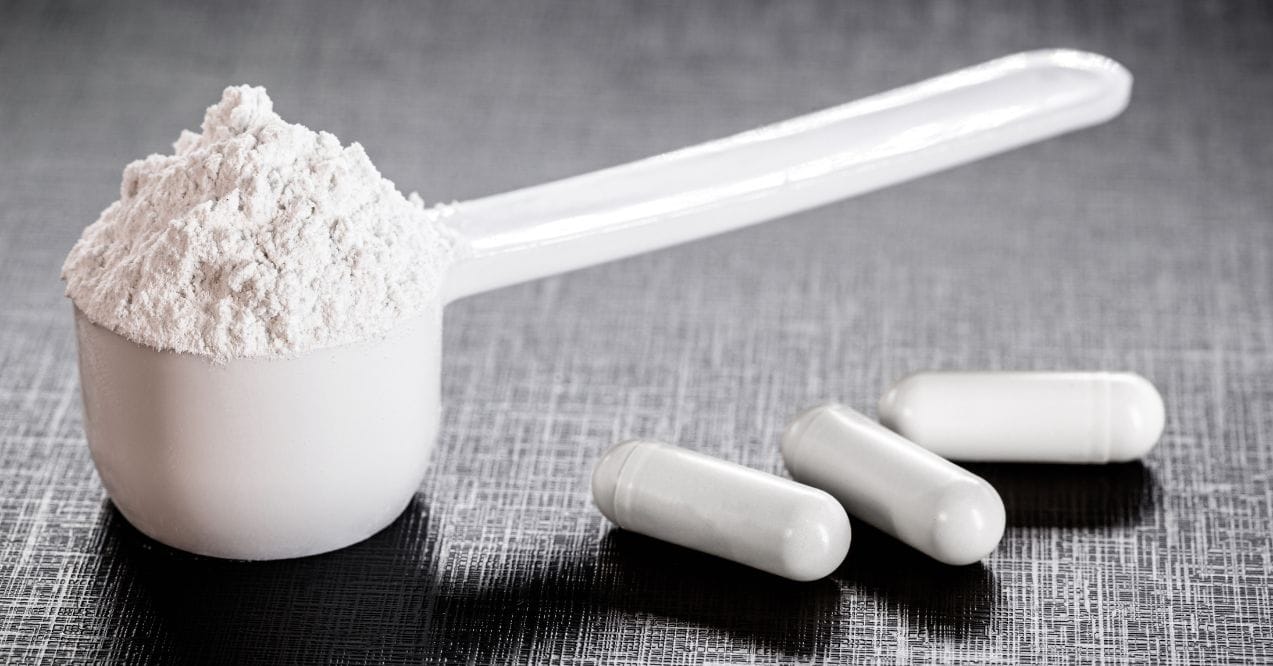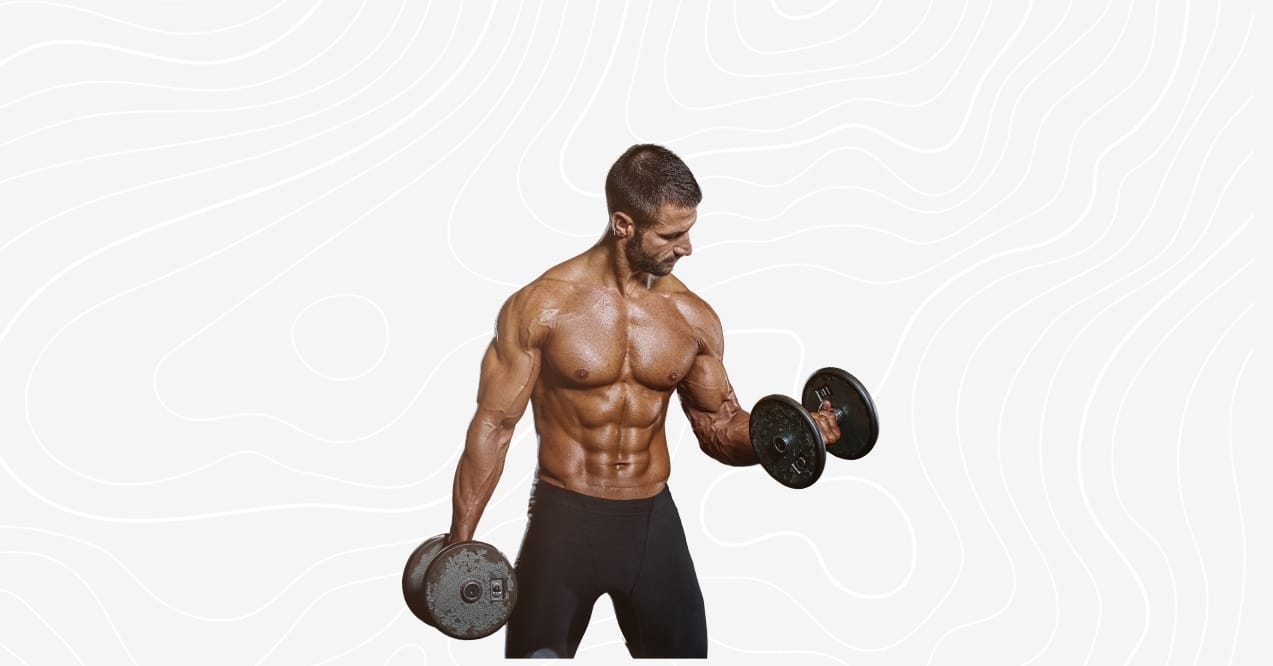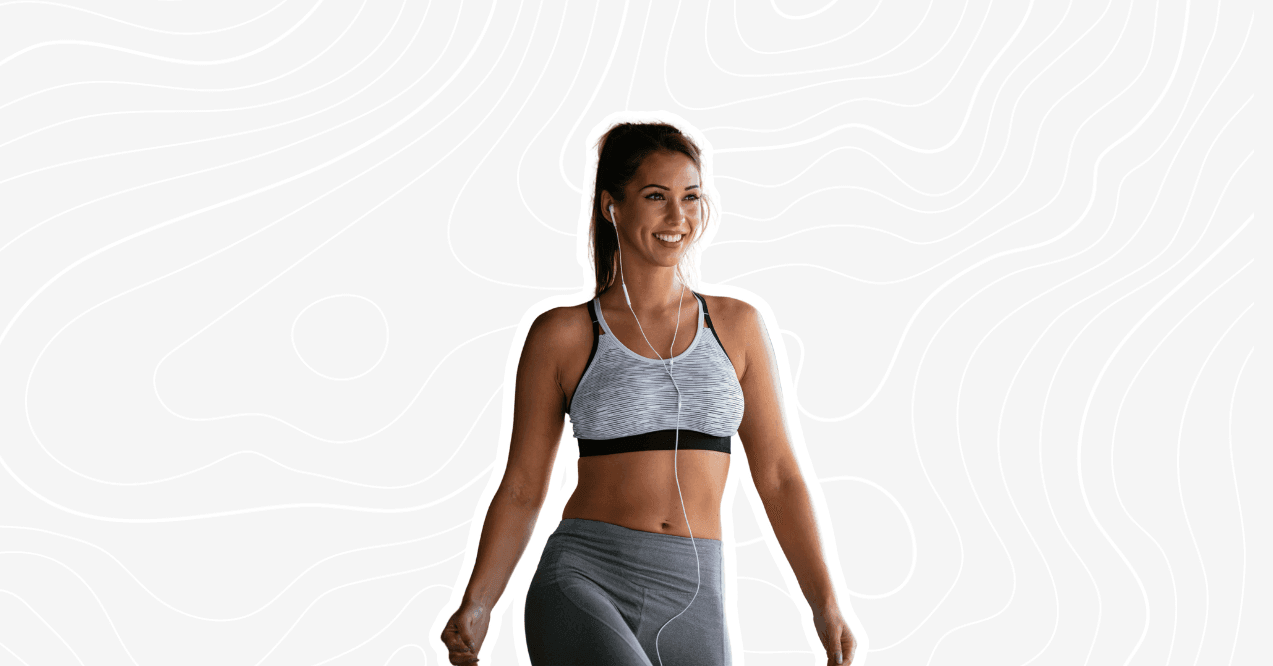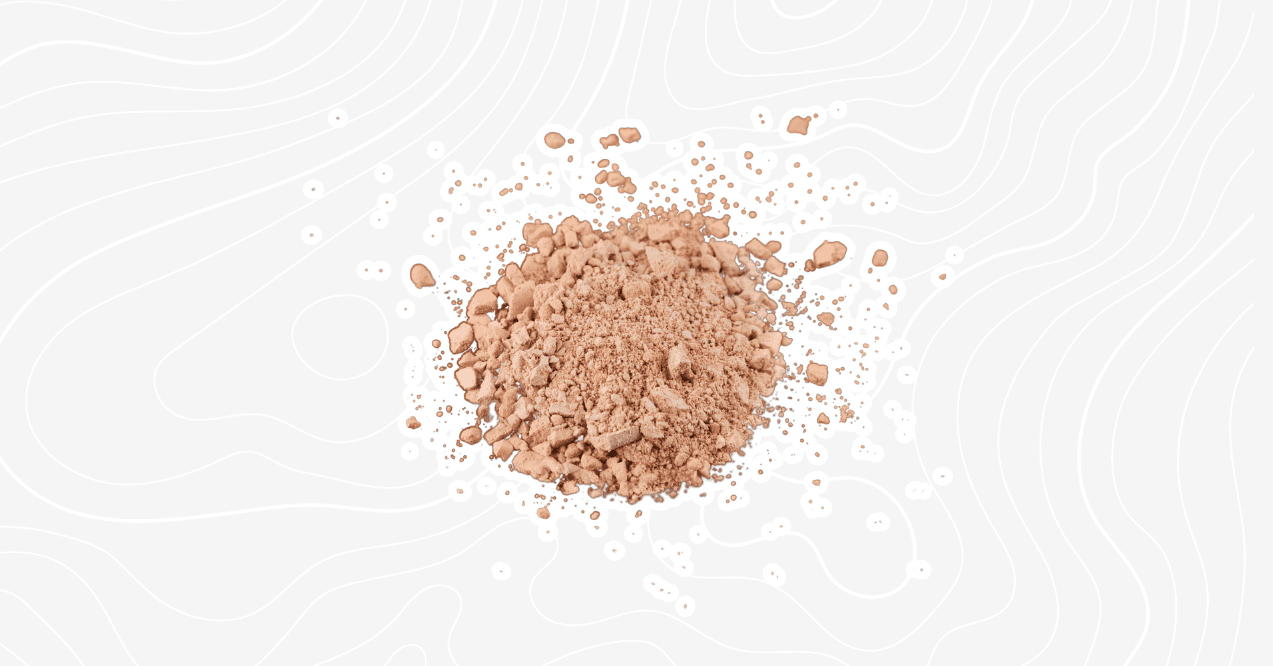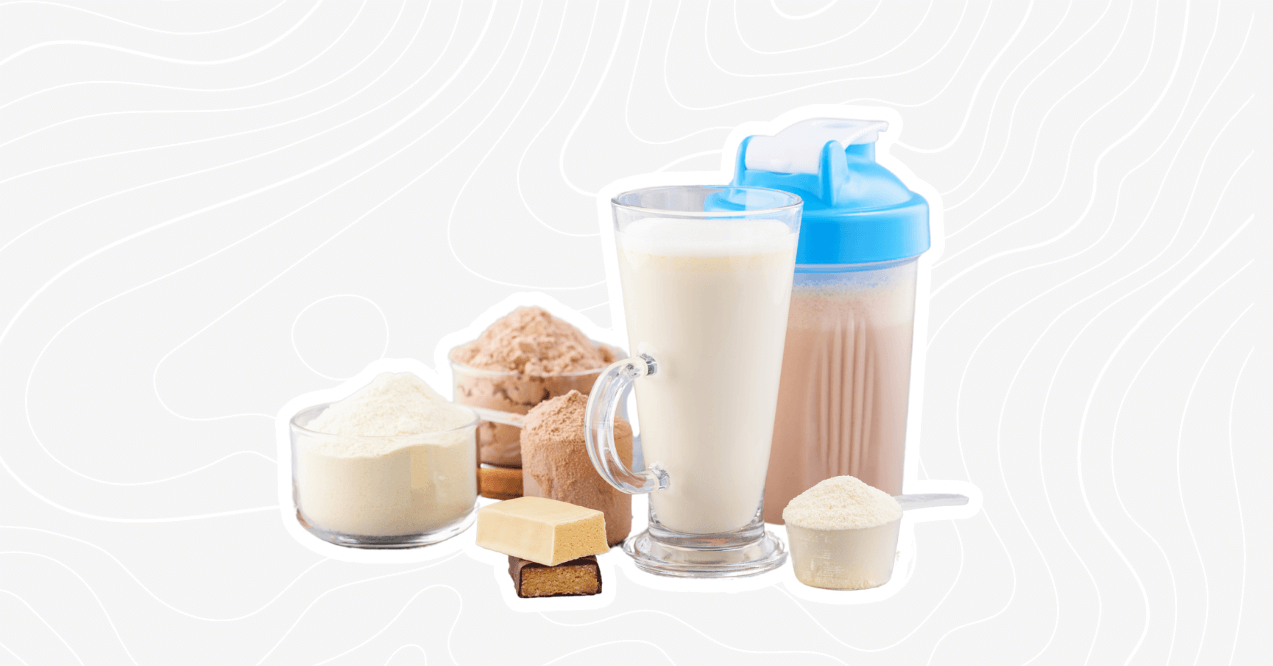Does Pre Workout Cause Acne? The Real Scoop
Are you worried about acne breakouts and keep asking yourself… does pre-workout supplements cause acne? The worry might be real, but is there any actual truth in this?
Factors such as hormones, genes, and skincare routines are the major determinants of people’s susceptibility to acne breakouts. Although pre-workout supplements are believed to increase energy levels, focus, and performance, among other things, their relationship with acne has raised controversies.
In this article, we will unravel the complex association between pre-workout supplements and acne breakouts, drawing upon concerns within professional bodybuilding circles. As you think about your supplement routine, you might also wonder things like does pre workout expire or how other muscle gain stack factors might impact your skin and overall health. Stay tuned, as we will be explaining the biological mechanisms of these supplements and assessing their potential to cause acne.
Also, if you’ve ever wondered, how long does pre-workout last? or what is the relationship between gut health and acne explore our other blogs.
Key Article Findings:
Does Pre-Workout Make You Break Out?
So, does pre-workout actually cause acne? It is most probable that your pre-workout supplement doesn’t cause breakouts. However, some ingredients in pre-workout powders can worsen skin problems for those with acne-prone skin.
Dermatologists haven’t fully figured out what causes acne, and it differs from one person to another. This is why it’s not easy to say that pre-workout supplements are the cause of acne.
Currently, the Internet is filled with personal anecdotes alleging that pre-workouts cause breakouts. These worrying stories do exist online, however, the correlation doesn’t imply causation.
While the question: does a pre-workout cause acne? remains valid, the answer is most unlikely. Just because you start taking pre-workout supplements and suddenly suffer an outbreak doesn’t mean that there’s any direct connection between the two.

Why Pre-Workout Might Cause Acne
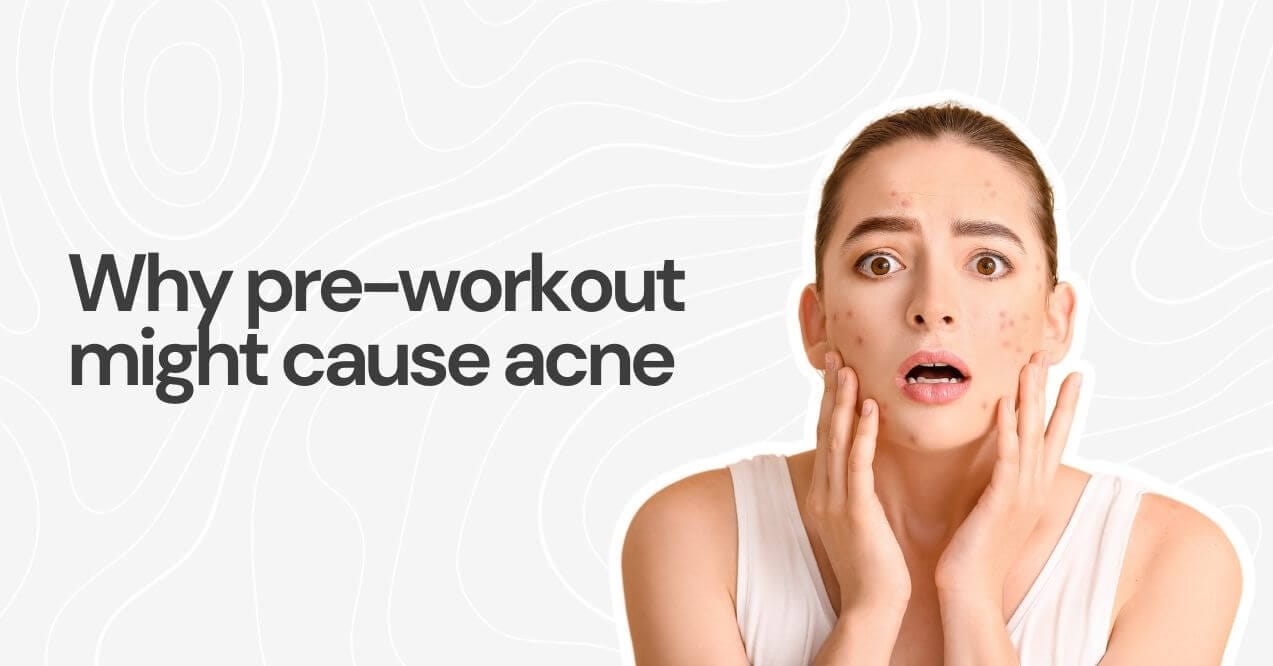
So much work has gone into research on pre-workout supplements and their link to acne. However, does pre-workout cause acne? Well, the science behind pre-workout and acne is still incomplete, and no direct connection between acne and pre-workout has been established.
So, why are you breaking out? Maybe bacteria, genetics, or stress are at play. Or perhaps your suspicions are right – an ingredient in your pre-workout could be the issue. So, what do you do? Smart buyers also inspect their purchases. Go through every ingredient in that list!
The specific components that should concern you are artificial sweeteners, high sugar content, caffeine, and BCAAs (branched-chain amino acids). Such constituents are common in pre-workout powders and may have implications for individuals who get pimples.
Excessive sweating, hormonal imbalances, poor hygiene practices, and dietary patterns can also influence whether or not one gets acne. Therefore, well-informed decisions about fitness supplements and acne management should include an analysis of each component that could affect our skin health due to previous exposure to pre-workout ingredients.
Pre-Workout Ingredients That May Trigger Acne Breakouts
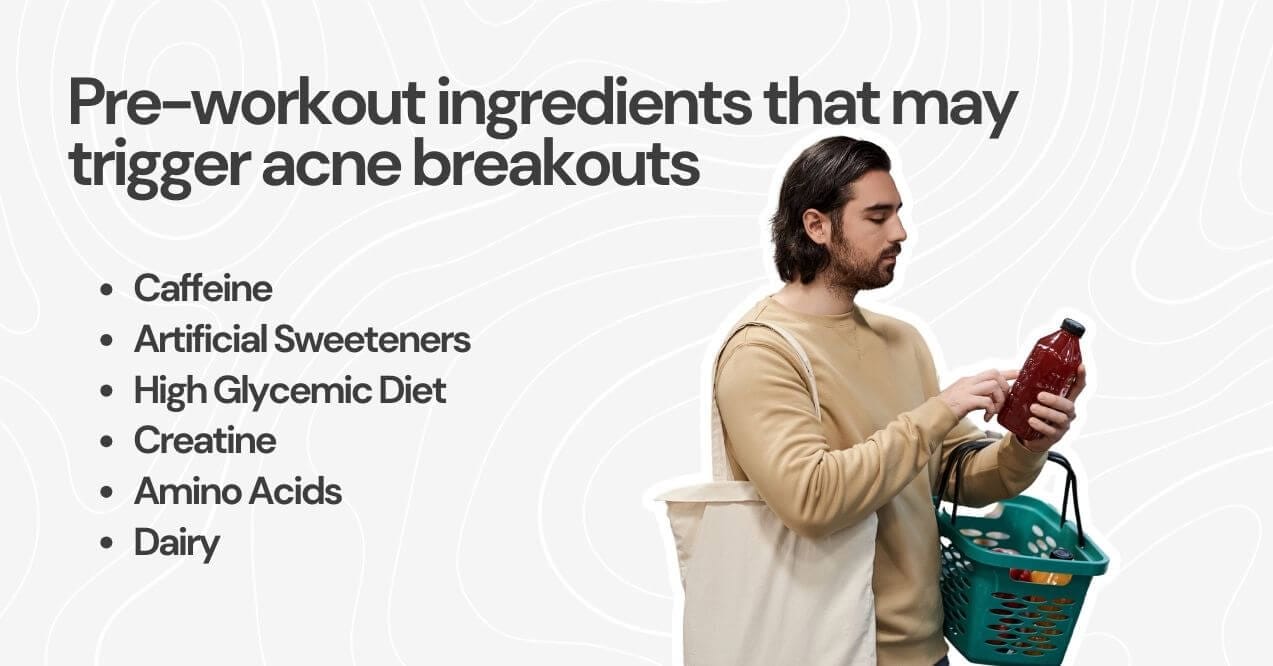
We cannot link acne directly to any pre-workout ingredients. However, some common ones may trigger a breakout in certain individuals.
Caffeine
While caffeine can indeed boost workout energy, it is important to note that high levels of caffeine found in pre-workout products can stress the skin, which can create a slight shift in balance. Sometimes, too much caffeine leads to dehydration and dry, acne-prone skin.
The association between acne and coffee drinking is evident from research by the National Institute of Health. This research points out that caffeine has a diuretic effect on the kidneys, increasing urine production, which affects the skin in two main ways.
An increased volume of urine can result in dehydration throughout the body. Overly dehydrated skin is fine for most people. However, do you suffer from acne? If so, you should know that oily skin won’t bring you any relief – not even close. And how about magnesium, which has anti-inflammatory effects? Caffeine modifies the absorption rate, increasing various health issues, including inflamed acne-prone skin.
Artificial Sweeteners
Some pre-workout supplements include artificial sweeteners like sucralose to improve taste. Some people may develop acne due to the use of artificial sweeteners. The linked study revealed that 200mg of sucralose taken each day for four weeks by 15 participants increased the likelihood of acne.
High Glycemic Diet
Acne arises from increased keratinization, sebum production, and pro-inflammatory skin responses. These factors are interconnected and may contribute to the development and persistence of acne lesions.
Another factor linked to acne is a high-glycemic diet. It might raise glucose levels in the body while impacting other physiological responses. This rise in glucose in the bloodstream could cause or worsen acne eruptions.
Creatine
After consuming creatine, a compound known for its water-absorption property, one may feel extremely thirsty or require more water intake. Creatine has been linked to increased production of male hormones, potentially causing acne.
Moreover, it can trigger excess sebum production and thus lead to frequent breakouts. While no scientific evidence directly links creatine with acne, anecdotal evidence has suggested a correlation between these two conditions.
Amino Acids
Your body needs branched-chain amino acids to function well. Leucine, isoleucine, and valine perform different functions, and leucine could be linked to acne. The link between BCAAs and acne lies in hormone regulation. BCAA impacts hormones, which affect skin oiliness and sebum production in particular. This leads to excessive sebum that can clog pores, creating an environment for bacteria that cause pimples.
Consuming BCAAs with food may help reduce the risk of acne caused by them. This decreases hormonal influence and the likelihood of adverse reactions. When selecting a suitable BCAA brand, one should research, read reviews, and ask for professional opinions.
Dairy
Dairy is another ingredient that is sometimes added to pre-workout supplements. Many surveys, mainly among young people and adolescents, suggest an association between regular dairy product intake and increased acne severity. Nevertheless, it is worth noting that the current studies lack quality and conclusive evidence but suggest correlation without showing causation.
Dairy as a direct cause of acne has yet to be investigated for clear results, regardless of whether such investigations are speculative. The relationship between frequent dairy consumption and increased severity of acne remains vague.
Tips for Managing Acne While Taking Pre-Workouts
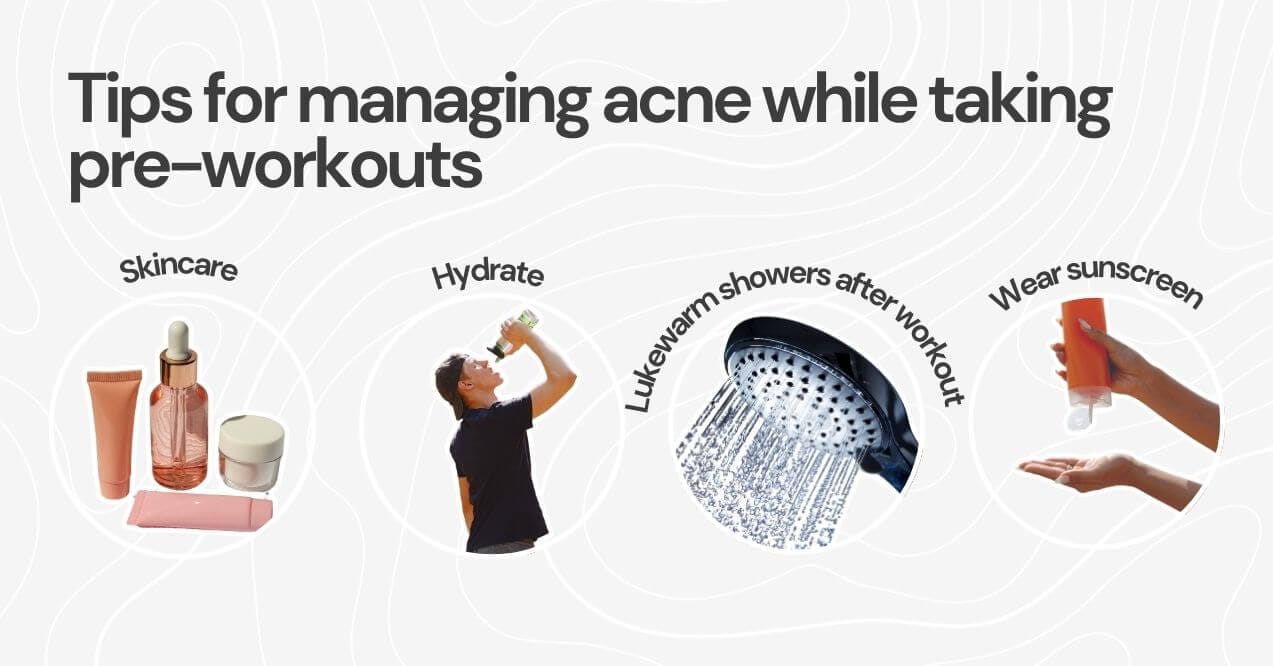
For those who can’t afford a gym session without first getting their blood pumping from a pre-workout drink, here are things you can do to get that pump going without risking an acne outbreak.
Skincare
Maintaining 24/7 facial hydration is important because pre-workout tends to dry the skin. If your workout involves sweating, choose a light gel moisturizer that sinks in quickly without leaving an oily residue.
Have you heard of salicylic acid face wash? It’s a must-have in your beauty regimen. It effectively exfoliates the skin and cleans pores from dirt, excess oil, and pore-clogging debris. Ditch using body wash or hand soap for your face – that causes more trouble!
Hydrate
Drink water consistently throughout the day, even when you are not thirsty, to prevent dehydration. If you experience increased toilet trips due to pre-workout supplements, seek to replace this fluid loss consciously.
It is important to stay properly hydrated during workouts. Sweat mingles with water drawn by creatine-containing pre-workouts into muscles at the expense of other body parts. The intensity of exercise and amount of supplement consumed determine dehydration levels.
Lukewarm Showers After Workout
Cold or very hot water may cause your skin to dry out and break, resulting in excessive oil production by your body, which can increase the likelihood of breakouts. So, after exercising, you should take a lukewarm shower, as this helps wash away dirt without drying your skin.
Wear Sunscreen
Never step outside without applying some sunscreen! Use one with at least 30+ SPF. Make sure it provides coverage against UVB and UVA rays. When you exercise or spend time outdoors, the skin dries up due to excessive exposure to sunlight, prompting the body to produce more oil, which may generate pimples when trapped in the clogged skin pores. Wearing suitable sunscreen saves your skin from such risks and keeps it healthy.
Post-Workout Nutrition for Clear Skin
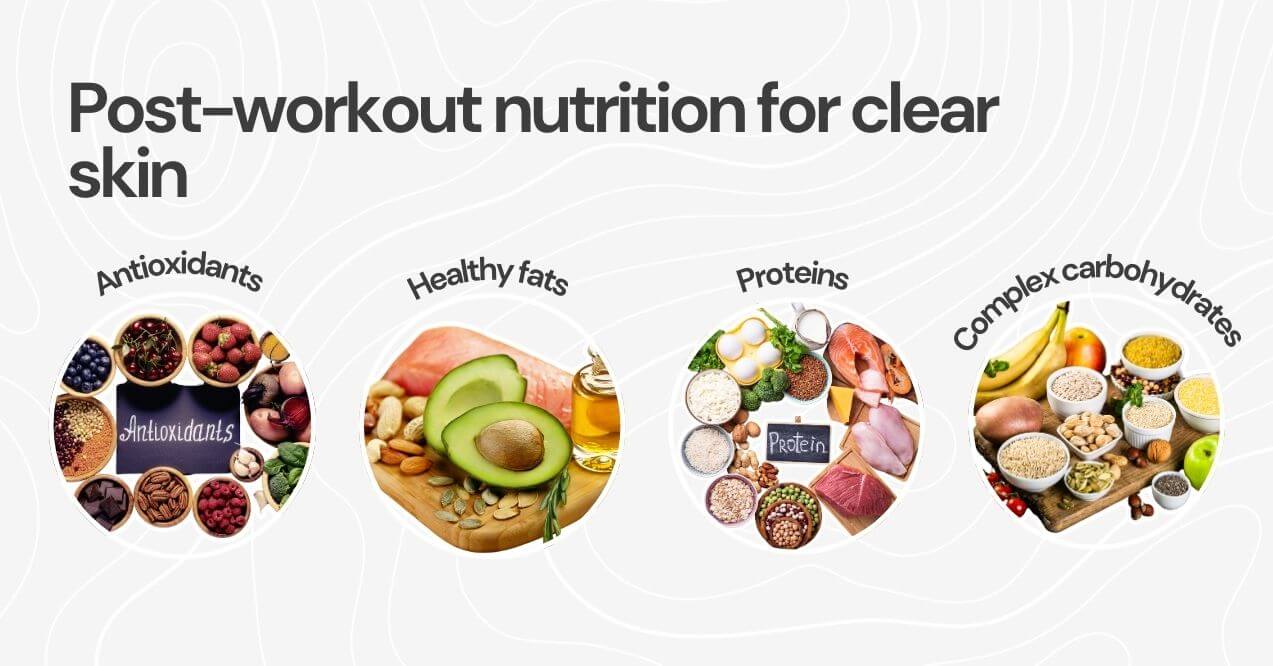
The food you take in after a workout session can help with getting back the muscles, improving your overall health, and even lead to good skin. An optimal post-workout diet may result in a clear complexion while compensating for pre-workout ingredients that might trigger acne.
Antioxidants
If you want clearer skin, choose antioxidant-rich foods such as berries, dark leafy greens, and nuts that defend against free radicals and pro-inflammatory activity. Some additional antioxidant-rich foods include:
- Spices (ginger, turmeric, garlic) and herbs (parsley, sage, rosemary, thyme)
- Spinach
- Beets
- Red cabbage (Purple cabbage)
- Kale
- Raspberries
- Goji berries
- Artichokes
- Strawberries
- Blueberries
- Pecans
- Dark chocolate
- Okra
- Cranberries
- Plums
- Gala apples
- Green tea
- Black tea
Healthy Fats
There are good fats and bad ones. That slab of butter falls into the latter category. Ditch that for the following:
- Fish (like tuna, herring, mackerel, salmon, sardines, and trout)
- Eggs
- Avocado
- Nut and seed butter
- Olive oil
- Tofu
- Yogurt
- Peanuts
Proteins
Select poultry, turkey, beans, and lentils as lean protein sources that will be good for the muscles without acne flare-ups. Here are more choices to help you in getting your daily dose of protein:
- Chicken breast
- Protein powders
- Beans and lentils
- Cottage cheese
- Greek yogurt
- Fish and shellfish
- Turkey breast
- Tofu
- Lean beef
- Egg whites
- Venison
- Legumes
- White poultry meat
- Powdered peanut butter
- Low-fat milk
- Pork loin
- Frozen shrimp
- Bison
Complex Carbohydrates
Choose complex carbohydrates over other types! They have a lower glycemic load.
- Quinoa
- Oats
- Brown Rice
- Millet
- Bulgur Wheat
- Barley
- Wild Rice
- Farro
- Buckwheat
- Lentils
- Chickpeas
- Black Beans
- Pinto Beans
- Kidney Beans
- Cannellini Beans
- Peas
- Sweet Potatoes
- Potatoes
- Butternut Squash
- Beets
- Acorn Squash
- Delicata Squash
- Parsnips)
- Apples
- Oranges
- Pineapples
- Bananas
- Peaches
- Mangoes
Unleash Your Peak Performance With Trumeta Pre-Workout Powder

Ready to redefine your workout experience? What if we told you that there exists a simple way to get a healthy body and mind? The answer is trumeta pre-workout powder. It makes every workout a pleasant experience so that you’ll want to keep on going. This novel formula brings you maximum physical and mental agility. Its ingredients include:
- Thiamin, vitamin B6, and vitamin B12 not only fuel the body’s energy production but also support the nervous and immune systems.
- L-tyrosine is vital in brain function because it enhances neurotransmitter production.
- Beta-alanine delays fatigue and improves muscle endurance during high-intensity exercises.
- Beetroot powder drives an improved uptake of oxygen, blood, and nutrients to the muscles, which helps enhance recovery times and strength.
- Ginseng extract functions as an adaptogen that prepares your mind for action.
- Caffeine Anhydrous stimulates the central nervous system, thereby reducing discomfort associated with aches and maximizing performance; this feature makes it ideal for use prior to workouts or any strenuous activities.
Life is about constantly challenging yourself to be a better you. Here is a list of benefits you’ll experience with Trumeta Pre-Workout Powder:
- Enhanced Endurance Levels – Containing beta-alanine, Trumeta Pre-Workout improves endurance and prepares you well for tough exercises.
- Sustained Energy Levels – Beetroot and B vitamins maintain continuous energy levels, which keeps one motivated throughout the period.
- Improved Muscle Growth & Power – Ginseng plus L-tyrosine come together to generate a positive attitude that promotes muscular development and builds on power output.
- Heightened Mental Focus – Caffeine anhydrous as well as L-tyrosine enhance sharp memory recall and total focus thus ensuring unwavering concentration on fitness purposes.
Clients swear by this product, so don’t give it a pass without trying it out. Subscribe today and save!
Final Thoughts
So, does pre-workout cause acne? Not really. Pre-workout supplements are not what really causes acne, but some ingredients like caffeine, sweeteners, creatine, BCAAs, and dairy can cause this condition to persist in people who suffer from it.
Are you taking pre-workouts and want to manage occasional breakouts? Tips include:
- Adhering to a proper skincare routine
- Drinking plenty of water
- Taking cool showers after workout sessions
- Using sunscreen
- Consuming an appropriate diet
No, your pre-workout supplement is probably not directly responsible for your acne. What might be the issue is its underlying ingredients. You might want to ditch a pre-workout containing caffeine, artificial sweeteners, creatine, branched-chain amino acids (BCAAs), and dairy. These may lead to breakouts. Observe your skin’s reactions after use to determine a product’s suitability.
When you ingest creatine, you may experience dehydration as a side effect. That may aggravate acne, notably if you have sensitive skin. Creatine also drives an increase in male hormone production. As a result, you’ll have more sebum. That may cause you to develop acne.
No, pre-workout supplements don’t cause acne for everyone. However, some individuals may be more sensitive to certain ingredients, such as caffeine or artificial sweeteners, which could potentially trigger acne breakouts.
While proper skincare can help manage breakouts, certain ingredients in pre-workout supplements, such as caffeine or sugars, may still contribute to acne, especially in individuals who are prone to skin issues or sensitivities.
Advertisement. This site offers health, wellness, fitness and nutritional information and is designed for educational purposes only. You should not rely on this information as a substitute for, nor does it replace, professional medical advice, diagnosis, or treatment. If you have any concerns or questions about your health, you should always consult with a physician or other health-care professional. Do not disregard, avoid or delay obtaining medical or health related advice from your health-care professional because of something you may have read on this site. The use of any information provided on this site is solely at your own risk.
